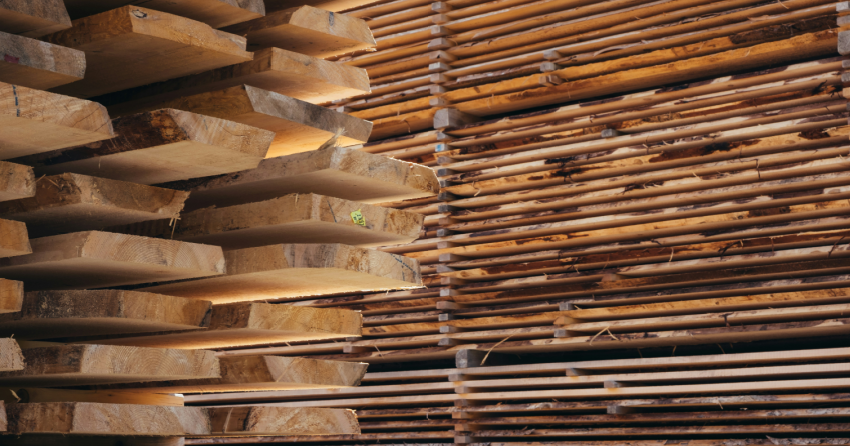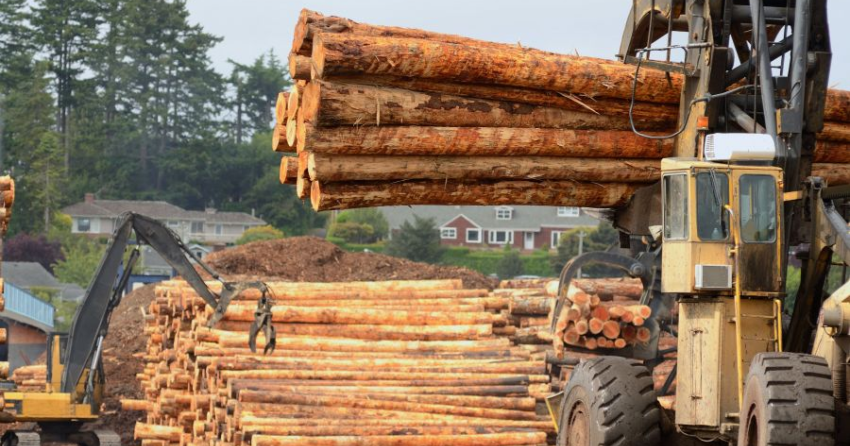Search KamloopsBCNow
- Food & Drink
- Biz+Tech
- Columns
- Travel & Lifestyle
- Arts & Culture
- News & City Info
- Events
- Webcams
- Advertise
- Real Estate
- Contests
- Best Of the city
- Faces of Kamloops
- More
- Real Estate Listings
- Subscribe
- Contact
The British Columbia Lumber Trade Council, BC Premier David Eby and BC’s forests minister Ravi Parmar are decrying the latest tariffs targeted at Canada’s softwood lumber sector.
On Monday night, US President Donald Trump announced new tariffs that are expected to negatively impact Canadian producers of softwood and lumber and furniture.
According to Trump’s presidential proclamation, imports of softwood timber and lumber will be subjected to a 10% duty rate, while a 25% duty rate will be applied on imports of kitchen cabinets and vanities, including parts and completed models, and other upholstered wooden products.
The new tariffs are due to go into effect on Oct. 14.

On Jan. 1, the duty rate for upholstered wooden products will increase to 30% and the duty rate for kitchen cabinets and vanities will jump to 50%.
These tariffs are in addition to the 35.19% duties on softwood lumber exported from Canada finalized in August.
The proclamation said “wood products are being imported into the United States in such quantities and under such circumstances as to threaten to impair national security.”
Trump’s proclamation said the tariffs “shall continue in effect, except for countries with which the United States reaches an agreement that addresses the threatened impairment of the national security posed by imports of wood products.”
Premier Eby responded to the US’s decision to impose additional tariffs on Canadian timber and Lumber through Section 232 of the U.S. Trade Expansion Act.
“Let’s be clear. These tariffs on our lumber have NOTHING to do with national security,” he said in a statement.
Eby called the tariffs an “economic assault” targeting BC families and said they would actually raise prices for US consumers.
“BC will stand with our forestry workers at the same time as we diversify our economy,” Eby said.
“There are other countries that want BC lumber, and together we will build a strong future for BC’s forestry workers.”

This latest tariff announcement comes a week after BC announced major changes to the role of BC Timber Sales (BCTS) in an effort to bolster BC’s forestry sector.
Ravi Parmar, Minister of Forests, said these latest tariffs “lack logic” while driving up costs for US consumers and further straining the relationship between Canada and the US.
“To suggest that Canadian lumber, which is used to build affordable homes for American families, is somehow a national-security risk is ludicrous. This action has no basis in fact,” Parmar said in a statement.
“We know British Columbia is the second-largest exporter of softwood lumber in the world, second only to Russia; yet, right now, Canadian lumber faces higher duties and tariffs than Russian lumber. Think about that. At a time when the U.S. should be working with its closest ally, it is punishing Canadian producers more than it does Russia. It undermines workers and communities on both sides of the border.”
Meanwhile, the British Columbia Lumber Trade Council (BCLTC) has also expressed “deep disappointment” with the announcement.
“Imposing new tariffs under Section 232 is misguided and unnecessary,” said Kurt Niquidet, president of the BCLTC.
“These tariffs will not improve US national security — they will only drive-up lumber costs, making housing even less affordable for American families and undermining the integrated trade relationship that benefits both our countries.”
The BCLTC said the import taxes, which now exceed 45%, will impose a needless strain on the North American market, threaten jobs on both sides of the border and make it harder to address the housing supply crisis in the US.
Trump’s proclamation laid out an Oct. 1, 2026 deadline for Howard Lutnick, the US Secretary of Commerce to come back with an update on imports of hardwood timber and lumber, their markets, and the domestic industry.
The proclamation said Trump may choose to impose an additional duty on imports of hardwood timber or lumber.
Parmar said BC has applied a two-month pause on timber-harvest bill payments to help companies absorb the immediate effects of the tariffs.
He also said the province is working with the federal government and international allies to challenge the trade actions.
In August, Prime Minister Mark Carney promised $700 million in loan guarantees to address what he called "immediate pressures" and $500 million for long-term supports to help companies diversify export markets and develop their products.